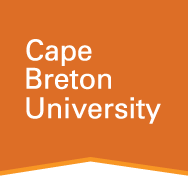Chemical Engineering courses
Cape Breton University

- Canada
- World Rank : -
- Visit Website
Bachelor of Engineering Technology
Chemical
Design Your Future
Skilled technologists are in demand. In fact, demand exceeds supply. Cape Breton University has a well-earned reputation for excellence in the development and delivery of technological education. Our expertise is reflected in the innovative Bachelor of Engineering Technology (BET) degree, which is dedicated to providing a one-of-a-kind education to fill a in-demand career.
The BET degree program prepares students to meet the challenges and opportunities facing today’s technical graduates. Flexible and timely programs get you through school and into the working world with options of structuring your degree based on your career goals. Program options include two-year diploma programs within Instrumentation, Electronics and Controls, and Petroleum as well as four year advanced degrees. Talk to an Enrolment Services Professional to structure your degree to fit the future you have in mind.
Why a BET at CBU?
Invent, design and innovate.
What is the Study of Chemical Engineering Technology?
The Bachelor of Technology in Chemical is a program with three or four year options. Combining theoretical principles with technical expertise, this degree takes an applied approach to not only chemical processes, but instrumentation and sample analyses. With great relevance to other fields of study such as engineering and nanotechnology, medicine and dentistry, food sciences and environmental sciences, the Chemical Engineering Technology programs provide a gateway into many interesting and opportunity-filled careers.
Students have great opportunities for hands-on research with state-of-the-art equipment, including a 400 MHz NMR spectrometer, FT-IR, FT-Raman, UV/Vis spectrometers, UPLC-MSMS/PAD, HPLC, GC-FID, GC-MS, atomic absorption spectrometer and a 28 core Linux cluster.
Program Options at CBU
The BET 3-year Chemical and 4-year Advanced Chemical programs are available through different pathways:
Post Diploma and Post Degree admissions will require a minimum of 50% of their BET degrees to be completed at CBU. Therefore a maximum of 45-credits (15, one term courses) may be transferred from an appropriate program at an approved post-secondary institution to the 3-year, 90-credit BET (Chemical) and a maximum of 60-credits (20, one term courses) may be transferred from an appropriate program at an approved post-secondary institution to the 4-year, 120-credit BET (Advanced Chemical).
Please see Program Details for more on the structure of this degree.
* The BET degrees do not lead to a professional engineering designation.
Entry requirement for international students
Students must require graduation from an academic secondary school program or equivalent with an average of “C” in five, senior academic-level/university preparatory courses with the following:
TOEFL
Paper-Based Test: 550
Computer-Based Test: 213
Internet-Based Test: 80
IELTS
Overall Score: 6.5
No Band Below: 6.0
| Type of university | Public |
| Undergraduate Programs | 17 |
| Postgraduate Programs | 3 |
| Diploma and Certificate Programs | 7 |
| Tuition per academic year for Undergraduate International Students | $17,809 |
| Test scores accepted | IELTS, TOEFL |
For international candidates aspiring to study at the university, it is mandatory to have an estimate of the cost of living in Canada to survive comfortably in a foreign land. Below is the estimated tuition and student fees for the Fall/Winter 2019 – 2020 presented-
| Fees | Undergraduate (CAD) | Graduate (CAD) |
|---|---|---|
| Tuition | 8,040 | 2,012 (for six credit course) |
| International differential fees | 8,040 | 1,608 |
| International medical plan | 744 | 744 |
| Fees | 985 | 128 |
| Housing | 5,910 | 5,910 |
| Meal Plan | 4,744 | 4,744 |
| Total | 28,463 | 15,146 |
Note: The graduate fee depends on the number of courses offered by the students. Thus, graduate students should expect to pay more than 400% of the above-stated fees
| Tuition Fees in Canada (1st Year Average) | BE / BTech: CA$22,600 | MBA: CA$25,375 | MS: CA$17,225 | BBA: CA$20,560 | MEng: CA$22,225 | BSc: CA$20,745 | MASc: CA$20,375 | MIM: CA$28,900 | MA: CA$12,970 | MFin: CA$32,785 | BHM: CA$20,560 | MEM: CA$17,040 |
| Average Accomodation & Food Costs in Canada | CA$8890 Per Year |
| Entrance Exams in Canada | TOEFL: 86 | IELTS: 6.5 | PTE: 60 | GRE: 309 | GMAT: 560 | SAT: 1177 |
| Work and Study in Canada | Permitted for 20 hours/week with a valid study permit. |
| Post Study Work Permit in Canada | Up to 3 Years after graduation depending on the course. |
| Cost of Student Visa in Canada | CAD 150 |
| Student Visa in Canada | A Canada student permit is a document issued by IRCC (Immigration, Refugees and Citizenship Canada) for international students in Canada. To study in Canada, you will require a student permit, which serves as a student visa. |
| Intakes in Canada | There are Three Intakes in Canada: Fall (September), Winter (January) and Spring (May) |
| Top Job Sectors in Canada | Business Management, Engineering, Economics, Dentisty, Law, Computer Science. |
| Economy in Canada | GDP Growth of 1.9% (2018) 1.5% (2019e), 10th Largest Economy in the World by Nominal |
Tuition & fees :
$ 8,476
Hostel & Meals :
$ 5,025
Total
$ 13,501